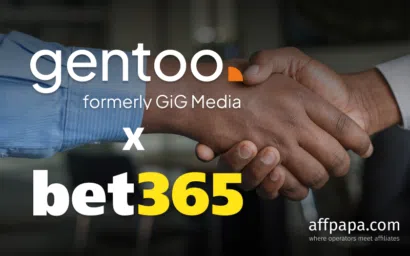Betting sector in danger of failure: Scott Longley

It comes as no surprise that the interest in esports betting has dwindled since the height of the pandemic, paving way for traditional sports to increase in popularity. Clearly, it is evident that the sports-betting sector is in danger of entirely missing out on a younger demographic.
GVC Holdings spent some time during its corporate re-brand presentation addressing the esports sector. Partly, the suspicion is that this is laying the foundations for a rumoured purchase in the space, something that chief executive Shay Segev did nothing to dismiss when he said that such an opportunity would be leverage “using our own capabilities plus also perhaps some acquisitions”.
“These audiences tend to prefer mobile, are keen on technology and like new betting concepts,” he told analysts. “It’s an exciting and growth market of which we will be in the forefront.”
Chief executive and founder at esports betting operator Rivalry Steven Salz said:
“This is exactly how we frame the discussion, We’re not just trying to be an esports betting company. We are building a product for the next generation of bettors and we happen to think that the best way to that customer is through esports.”
Marco Blume, trading director at Pinnacle, implied that the esports audience is a “pretty separate” one from the traditional sports-bettors on the site. “It skews significantly younger,” he said.
In the US, there are rumors going around of how sports-betting provides a route to a younger demographic for land-based casino entities which are staring down the barrel of an aging consumer.
But in the maturing sports-betting market, the main point of focus is whether online sports-betting and gaming is also missing the demographic target. Such an issue isn’t only present in the betting and gaming sector, but also extends to other industries that are possibly facing similar challenges. Salz used the consumer finance sector as an example, with its efforts to attract millennials to wealth management propositions.
“You have robo-advisers and the likes of Robinhood which are bringing in a much more online-savvy audience to investing,” he said. “These products are not re-inventing the wheel on how to monetize wealth management. They are just very good at attracting a different and younger crowd.”
They are trying to control this by offering a better user experience and it is this lesson that traditional betting and gaming operators are supposed to take note of.
“In many ways when we were building a product, we were philosophically like a young fintech company,” Salz added.
In Moritz Maurer’s case, founder and chief executive at GRID Esports (a technology and platform provider), the audience’s expectation leans more towards a “digi-centric model”.
“Esports fans, typically younger early adopters of tech, are three-to-five years ahead of their traditional sports counterparts who still tend to use linear media. This trend gives the user a stronger sense of ownership in the type of content they consume as well as the amount of advertising they encounter. To capture the potential of the massively growing esports audience, a bookmaker has to go further to present an appealing offering.” He said.
This “sounds simple” as Salz proposes, but for Rivalry, has taken three years of sharpening the brand’s voice. “The way we have developed is reflective of the product and the market. We are always developing this side of things. This is how you attract this demographic; you can’t just slap you name as a lead sponsor of a league and expect someone to come to your sportsbook. A much more dynamic socially engaged approach is necessary.”
Furthermore, Maurer stated that the esports audience is “more demanding” in the sense of wanting more from the betting experience. “This is why we see esports-specific books and non-endemic or traditional books that invest in that area like Pinnacle getting massively ahead in this relation. If esports is part of the strategy it will need more commitment than simply offering basic markets to succeed.”
Interestingly, Salz signaled to an example in the world of traditional sports-betting which directly justifies the argument about a generation gap. He shows a comparison between Barstool – and the Barstool Sportsbook – and DraftKings which he suggests has an audience which probably skews five to ten years older.
“Barstool, as a brand, is unique precisely because of its use of social media,” he said. “They target millennials. That is their playbook. Moreover, in Pennsylvania where Barstool Sportsbook has raced to a circa xx% share of the sports-betting market, the brand was the marketing”.
1Win, 1xBet, 1xSlots, 888casino, advertiser, advertisers, affiliate, affiliate business, affiliate marketing, affiliate program, affiliatemarketing, affiliates, AffPapa, AffPapa directory, ASA, bets, Betsson Group, BetWinner, bingo, Bingo Buzz, Btobet, casino, catena, Catena Media, directory, esports, Football Index, gambling, Gaming, Greentube, IGB, LeoVegas, Live Casino, live poker, lobbet, lottery, Malta, Mate Affiliates, MelBet, melbet affiliates, melbet partners, MGA, NetEnt, oneline.casino, online bingo, Online Share Casino, operator, operators, OSC, P2P, PariMatch, Pinnacle, poker, publishers, Red Tiger, Relax Gaming, SBC, SIGMA, sports, Sports Betting, sportsbetting, Tivoli Casino, value bets, VideoSlots, William Hill

























